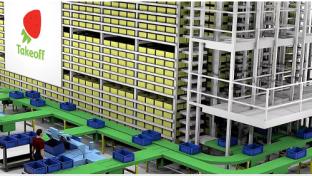Survey: Nearly 50% of U.S. Consumers to Shop Online for Thanksgiving Groceries

The number of consumers purchasing grocery items online for their Thanksgiving meals will more than double this year, with 44 percent buying online compared with 20 percent last year, according to the Digital Grocery Survey: 2018 Holiday Edition from RichRelevence, a leader in experience personalization.
Amazon dominates as the top online grocery destination for shoppers (57 percent), followed by big-box retailers such as Walmart and Target (48 percent). Traditional supermarkets like Safeway and Kroger will attract a significant ― but smaller ― number of online shoppers (30 percent) this holiday.
The top Thanksgiving items that people plan to purchase online are bundled ingredients for side dishes (56 percent); canned items like cranberry sauce (51 percent); and beverages including alcohol (44 percent). Turkey (33 percent) and frozen/pre-made desserts (31 percent) are the least likely to be purchased online. When online orders are ready, more shoppers plan to pick up their groceries (47 percent) than have them delivered to their homes (43 percent).
Americans overwhelmingly turn online for grocery shopping to save time (73 percent), and 26 percent choose to shop online because it allows them to shop for groceries during work hours. The top factors keeping people from shopping online for groceries are a lack of trust that others will pick the best or freshest items (50 percent), followed by a reluctance to spend extra money (37 percent).
Across the board, respondents have strong opinions on which online tools will be most helpful as they plan and prepare a Thanksgiving or holiday meal. Half of Americans (50 percent) said that online personalized offers or discounts are helpful, followed by fast, accurate search results on a grocer’s site (46 percent), and having a grocer present them with relevant alternatives when a desired item isn't available (43 percent).
“With online grocery shopping on the rise, it is critical that consumers have the best possible digital experience,” said Michael Ni, CMO of San Francisco-based RichRelevance. “We’re hearing directly from consumers that personalization and relevance define a positive, valuable online shopping experience. As companies race to differentiate and establish their brands in grocery, these experience investments will be critical in determining market leaders.”
The survey of 1,565 U.S consumers was completed online in November 2018.






